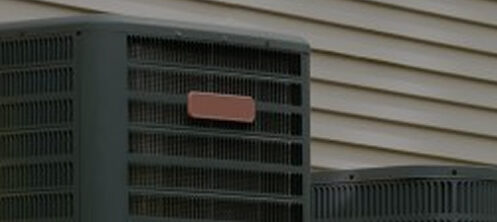Summer is right around the corner, and it’s the time that many people plan for their upcoming vacations. While it’s important to plan for transportation, accommodation, and activities, one question that often comes up is whether or not to turn off the air conditioning before leaving for vacation. Whether or not you turn off your AC before leaving on vacation depends on a few things, such as how long you plan to be gone for. If you’re gone for a few days, you may just decide to leave your AC on. However, if you plan to be gone for a few weeks, you may consider turning it off – or at least increasing the temperature. Ultimately, it comes down to personal preference. Let’s explore the pros and cons of turning off your AC before leaving on vacation.
Pros of Turning Off Your AC Before Leaving on Vacation
1. Save On Energy Bills
Turning off your AC before leaving on vacation can save you money on your energy bills. When your AC runs continuously, it uses a lot of energy, leading to higher electricity bills. Turning it off while you’re away can help reduce these costs.
2. Avoid Equipment Damage
Turning off your AC while you’re away can help prevent any potential damage that could occur in your absence. If there’s a power outage or a malfunction, the AC could continue to run, causing damage to the system.
3. Reduce Carbon Footprint
By turning off your AC before leaving on vacation, you can also reduce your carbon footprint. Using less energy can help reduce your impact on the environment.
Cons of Turning Off Your AC Before Leaving on Vacation
1. Increased Humidity
Turning off your AC while you’re away can increase the humidity levels in your home. High humidity levels can lead to mold growth, which can be dangerous to your health and damage your home.
2. Extreme Heat
Depending on where you live and the time of year, turning off your AC can lead to extreme heat buildup in your home. This can cause damage to your furniture, electronics, and other items in your home.
3. Unpleasant Odors
When you turn off your AC, the temperature in your home can rise, causing unpleasant odors to develop. This can be especially problematic if you have pets or if you leave food in your home while you’re away.
What to Do Before Leaving on Vacation
If you’ve weighed the pros and cons and are considering turning off your AC before leaving on summer vacation, there are some steps you can take to make sure your home remains safe and comfortable until your return.
1. Adjust The Thermostat
Instead of turning off your AC completely, adjust the thermostat to a higher temperature than normal. This will help reduce the energy usage while still keeping your home cooler than it would be if you turned your AC totally off.
2. Clean Your Home
Before leaving on vacation, make sure to clean your home thoroughly. This will help prevent any odors from developing while you’re away. Not to mention, coming back to a clean house is *chef’s kiss*.
3. Unplug Electronics
Unplug all non-essential electronics before leaving on vacation. This will help reduce the energy usage in your home while you’re away.
4. Install A Smart Thermostat
Consider installing a smart thermostat that allows you to control the temperature of your home remotely. This will allow you to adjust the temperature if needed, without having to turn off your AC completely.
Contact The Pros at Acree Plumbing, Air & Electric For All Your Air Conditioning Needs In Tampa, FL And Surrounding Areas
Turning off your AC before leaving on vacation can save you money and reduce your carbon footprint, but it can also lead to increased humidity, extreme heat, and unpleasant odors. By adjusting the thermostat, cleaning your home, unplugging electronics, and installing a smart thermostat, you can ensure that your home remains safe and comfortable while you’re away – without having to completely turn your AC unit off. If you need to schedule AC maintenance, repair, replacement, or installation, Acree Plumbing, Air & Electric is here to help. You can call us at (813) 703-1273 or contact us online here to schedule your appointment today.

